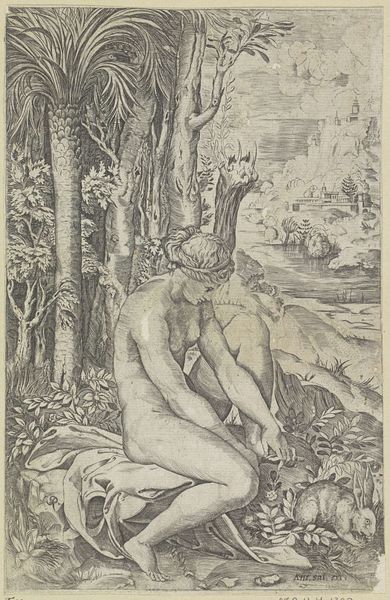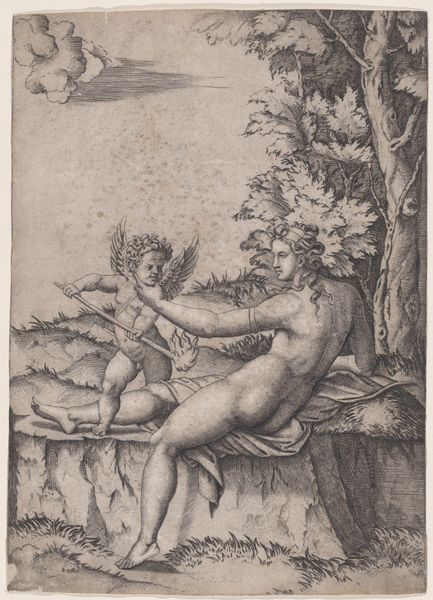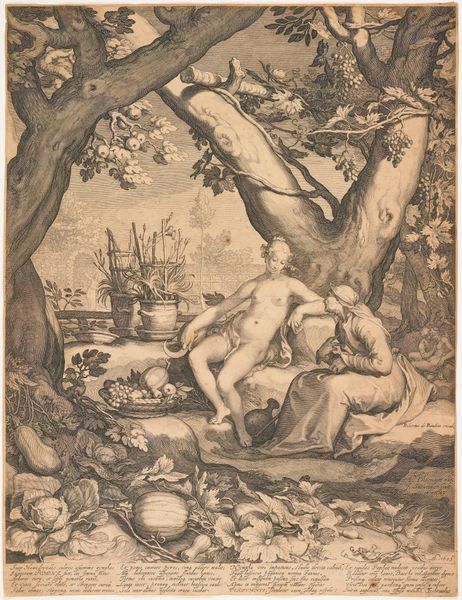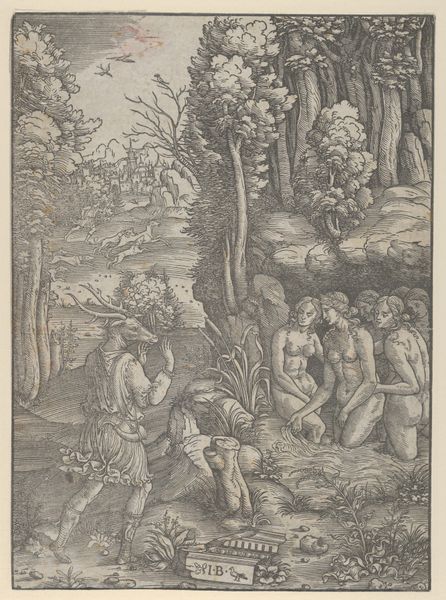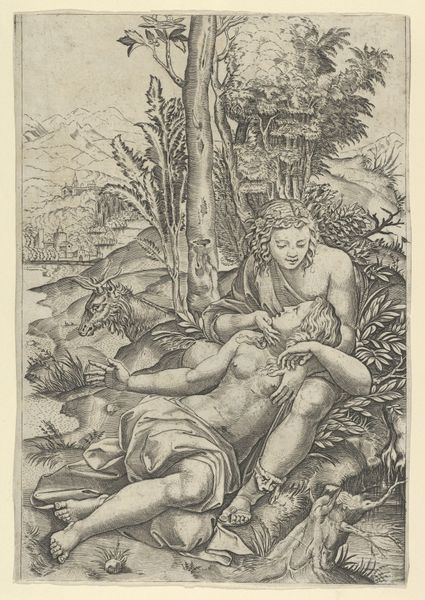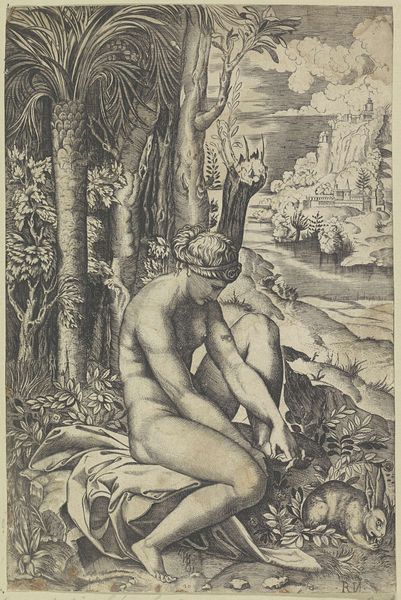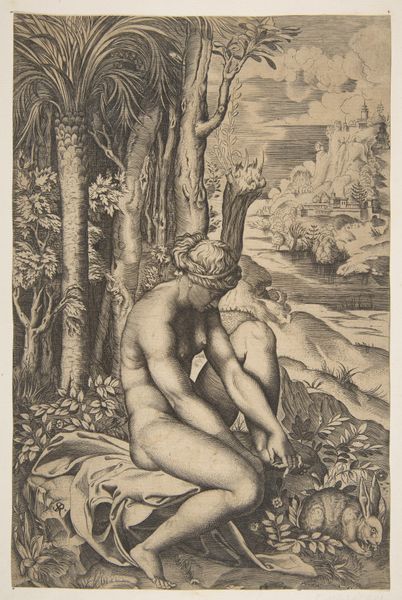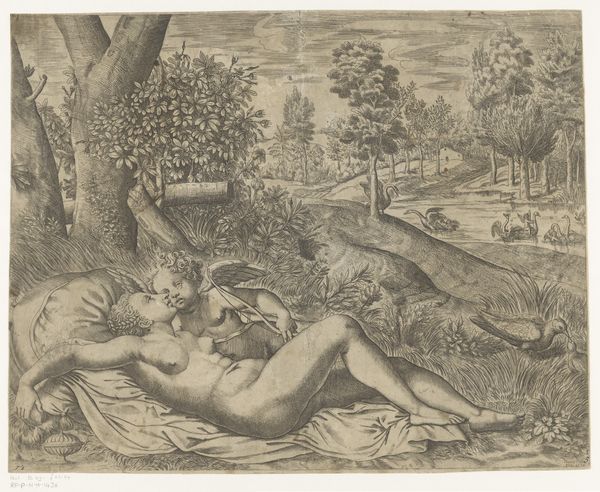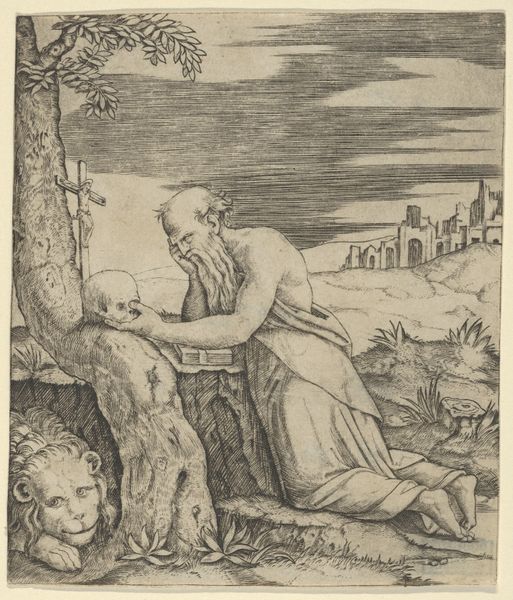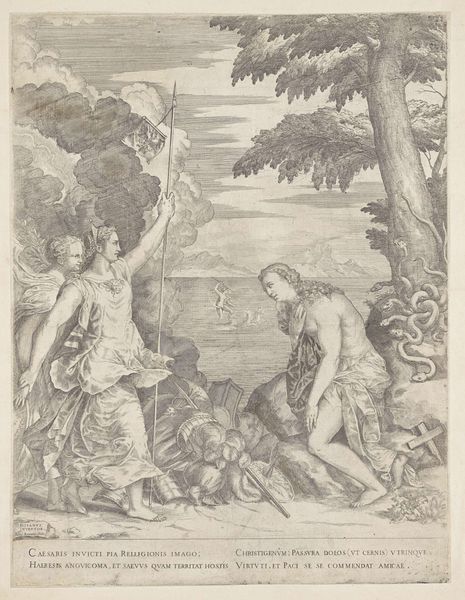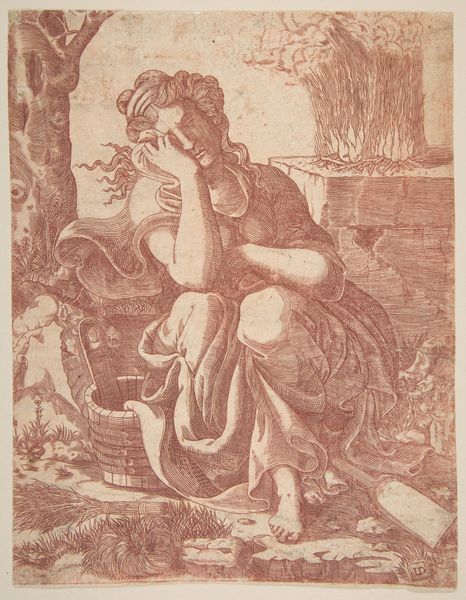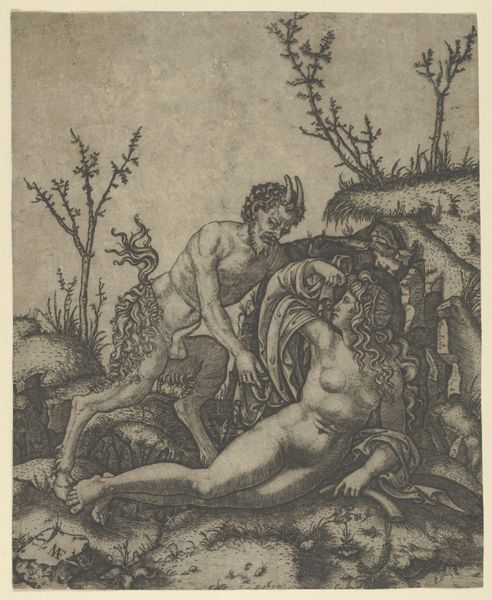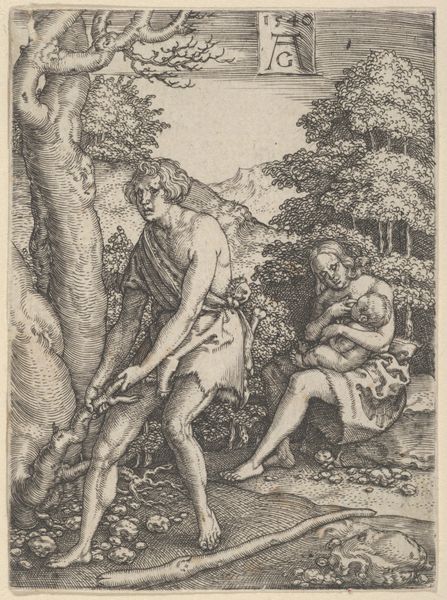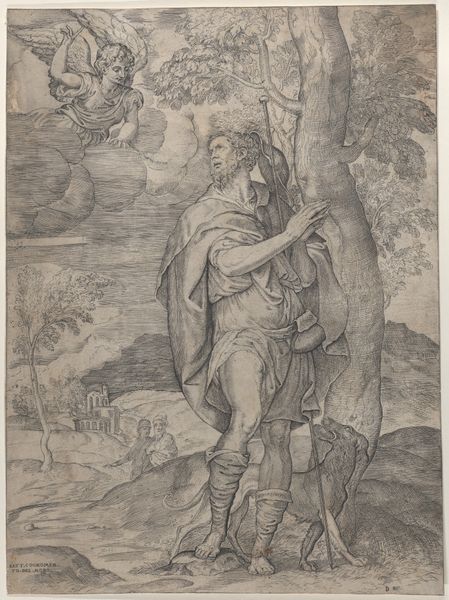
Leda and the Swan set in a landscape 1500 - 1510
0:00
0:00
drawing, print, engraving
#
drawing
#
narrative-art
# print
#
landscape
#
figuration
#
italian-renaissance
#
engraving
#
erotic-art
Dimensions: Sheet: 5 5/8 × 3 7/8 in. (14.3 × 9.8 cm)
Copyright: Public Domain
Giovanni Battista Palumba rendered this delicate print of Leda and the Swan, a mythological scene, sometime between 1495 and 1520. The dominant figures are, of course, Leda, the queen of Sparta, and Zeus, here appearing as a swan. The swan was often a symbol of purity and grace, but here it is tinged with darker undertones. Consider the enduring motif of metamorphosis, a cornerstone of classical mythology. Zeus's transformation into a swan mirrors the psychological concept of repressed desires finding expression in disguised forms. In the ancient world, the swan was associated with both beauty and cunning. This duality echoes through Renaissance art, with the Leda myth serving as a canvas for exploring human and divine nature. The tale of Leda and the Swan has continually resurfaced, evolving from ancient pottery to Renaissance paintings, and even modern literature, each era reinterpreting its themes of power, desire, and transformation. This non-linear progression speaks to our collective fascination with such primal narratives.
Comments
No comments
Be the first to comment and join the conversation on the ultimate creative platform.
